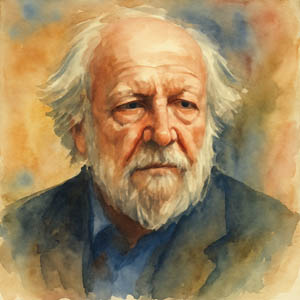~ William Golding
 English novelist Sir William Gerald Golding (1911–1993) was born on this day in Cornwall, England, and began writing at age six. His life changed forever during World War II, when he served with the Royal Navy in the Normandy invasion.
English novelist Sir William Gerald Golding (1911–1993) was born on this day in Cornwall, England, and began writing at age six. His life changed forever during World War II, when he served with the Royal Navy in the Normandy invasion.
“World War II was the turning point for me,” he admitted. “Anyone who moved through those years without understanding that man produces evil as a bee produces honey must have been blind or wrong in the head.” The war planted in him a lifelong reckoning with the darkness of human nature.
His first and most famous novel, Lord of the Flies (1954), was rejected by over 20 publishers before becoming a cult classic. The haunting story of stranded British schoolboys stripped away civilization’s veneer to reveal what he most feared: “Look out,” he warned. “The evil is in us all.”
Golding continued to explore moral struggles in novels such as Pincher Martin (1956), Free Fall (1959), and The Spire (1964). Reflecting on life, he offered a quiet metaphor: “The journey of life is like a man riding a bicycle. We know he got on and started to move. We know that at some point he will stop and get off. We know that if he stops moving and does not get off he will fall off.”
His 1981 novel Rites of Passage earned the Booker Prize. Two years later, he received the Nobel Prize “for his novels which, with the perspicuity of realistic narrative art and the diversity and universality of myth, illuminate the human condition in the world of today.”
For Golding, writing was a way to wrestle with truth. Each story was a mirror held to human frailty, a way of moving through his own shadows toward a deeper understanding. His words remind us that even in darkness, the act of creating can lead to clarity — and, sometimes, a quiet kind of peace.
 Through pain, clarity.🌟
Through pain, clarity.🌟
